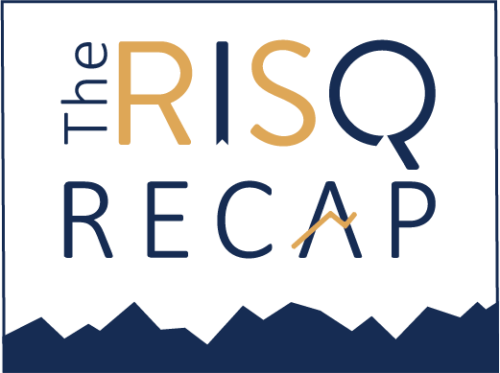
Each week, you’ll find specially curated news articles to keep you up to date on the ever-evolving world of insurance and risk management. The articles are divided out between items relevant to Property & Casualty, Employee Benefits/Human Resources, and Compliance. We’ve included brief summaries of each item as well as a link to the original articles.

PROPERTY & CASUALTY
Working Towards More Ethical and Resilient Supply Chains
“Recent disruptions, such as the COVID-19 pandemic, port congestion, and the Russia-Ukraine war have placed a spotlight on businesses’ supply chains and their resilience. Growing consciousness about environmental, social and governance (ESG) principles has also raised issues about more ethical business practices extending throughout the supply chain. These factors are leading companies to rethink their business logistics processes.” Full Article
– Business Insurance America

EMPLOYEE BENEFITS, HUMAN RESOURCES, & COMPLIANCE
A Court May Shorten the Duration of a Non-Compete Clause “Non-compete clauses are critical for companies to ensure former employees cannot freely accept positions with competitors risking exposure of the company’s valuable and sensitive confidential business information. To the extent necessary, courts can tailor the terms of a non-compete clause.” Full Article – Finnegan
Plan Sponsors Beware When Classifying Independent Contractors for Benefit Plan Purposes “Employers generally understand that “employee benefit plans” should only be provided to “employees” and that “independent contractors” should be excluded from benefit plan participation. While this concept is simple in principle, it is not as simple in application, since the determination of whether an individual is an independent contractor or an employee is not based on a bright-line test; rather, it is based on a facts and circumstances analysis.” Full Article – Haynes & Boone
Employers, It’s Time to Update Your EEO Poster “It is old news to most covered employers1 that they are obligated to post certain notices for their workforce. What these employers may not know, however, is that the EEOC recently updated and replaced its “EEO is the Law” poster. The “Know Your Rights: Workplace Discrimination is Illegal” poster, which covered employers must post in lieu of the old “EEO is the Law” poster, was initially released on October 19, 2022, only to be superseded by a further update on October 20, 2022.” Full Article – Littler Mendelson
Can Rap Music in the Workplace Create a Hostile Work Environment? “Is the playing of obscene and misogynistic rap music in the workplace discriminatory on the basis of sex if it offends women? A former Tesla employee has asked the U.S. District Court for Nevada to answer “yes” to that question after filing suit against her former employer alleging that, among other things, the obscene and misogynistic rap music, as well as the actions and statements made by her co-workers related to that music, amounted to sexual harassment.” Full Article – Shawe Rosenthal
Continuing Flexibility: DHS Extends I-9 Rules Until July 2023 “On October 11, 2022, the Department of Homeland Security (DHS), U.S. Immigration and Customs Enforcement (ICE), announced an extension to the Form I-9 flexibilities that have been in place since March 2020. As we previously reported, in response to the COVID- 19 pandemic, DHS has allowed employers with remote workforces to collect, inspect, and retain certain employees’ identity and employment authorization documents remotely. This flexibility was last set to expire on October 31, 2022, but is now extended until July 31, 2023.” Full Article – Venable
New Pay Transparency Laws Change Job Postings Coast to Coast “A growing number of cities and states are pushing for greater pay transparency in the hiring process. To add to that growing list, California and New York have both passed pay transparency laws in recent months, leaving employers to modify how they seek out new talent. However, employers should keep in mind that not all pay transparency laws are the same, and must take the proper steps to ensure they – Akerman
are fully complying with the laws of the states in which they are based and where their employees reside.” Full Article

STATE & INTERNATIONAL COMPLIANCE
In addition to the RISQ Review, RISQ Consulting also provides a resource that features changes and updates to State and International Compliance measures. We’ve included brief summaries of each item below, and also provided links to the original articles if you’d like to read further.
CALIFORNIA
New California Laws Impacting Employers
“Effective October 1, 2022, an amendment to the District of Columbia’s Human Rights Act (“the Act”) will expand the universe of workers protected under the Act, as well as codify workplace harassment as an unlawful discriminatory practice.” Full Article
– Cooley
Meal and Rest Break Claims Now Pose High Financial Risks to California Employers
“While perhaps overlooked in favor of other high-profile rulings (we’re looking at you, Viking River Cruises), the California Supreme Court’s decision in Naranjo v. Spectrum Security Services, Inc., No. S258966 (Cal. May. 23, 2022) may turn out to be one of the most significant cases of the year for California employers.” Full Article
– Greenberg Traurig
MARYLAND
Maryland Expands Employers Reasonable Accommodation Obligations to Applicants with Disabilities
“Since October 1, 2022, Maryland employers are obligated to reasonably accommodate not only the disabilities of employees, but also the disabilities of applicants. with Disabilities Act (ADA).” Full Article
– Lurch Early & Brewer Chartered
NEW YORK
NYC DCWP Purposes Rules to Implement New Law Governing Automated Employment Decision Tools
“On October 24, 2022, the New York City Department of Consumer and Worker Protection (“DCWP”) proposed rules to implement its new law regarding automated employment decision tools (“AEDTs”).” Full Article
– Hunton, Andrews & Kurth
CONNECTICUT
Connecticut Expands Anti-Discrimination Protections
“Connecticut’s broad anti-discrimination laws just got broader. The Connecticut Fair Employment Practices Act (CFEPA) prohibits discrimination based on many protected characteristics, such as race, age and disability. The CFEPA is broader than federal anti-discrimination laws in both coverage (it applies to more employers) and scope (it covers more categories of employees).” Full Article
– Day Pitney





 Subscribe to the RISQ Recap, a weekly post to help you stay up to date on news articles and resources for your organization’s compliance needs.
Subscribe to the RISQ Recap, a weekly post to help you stay up to date on news articles and resources for your organization’s compliance needs.